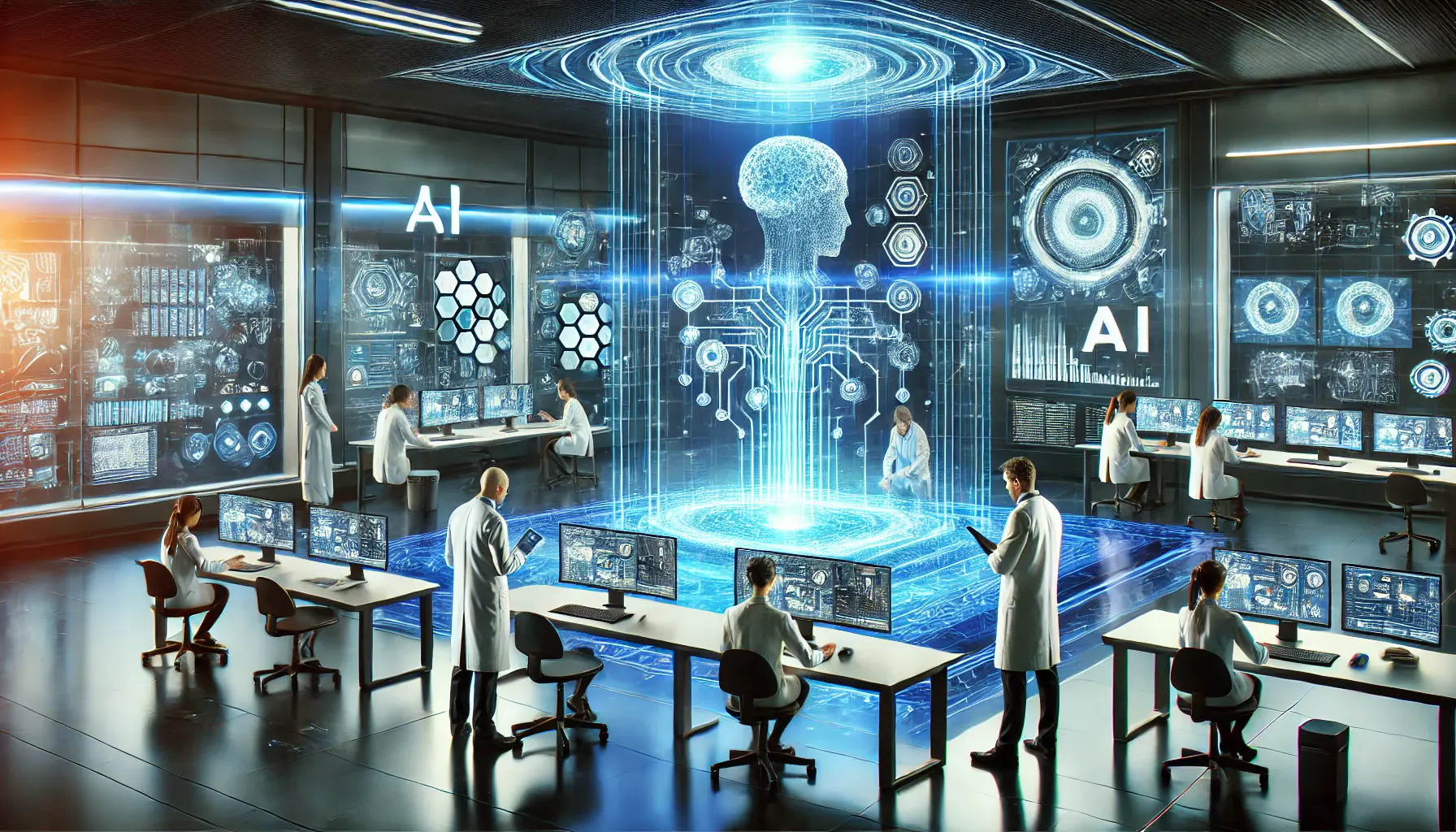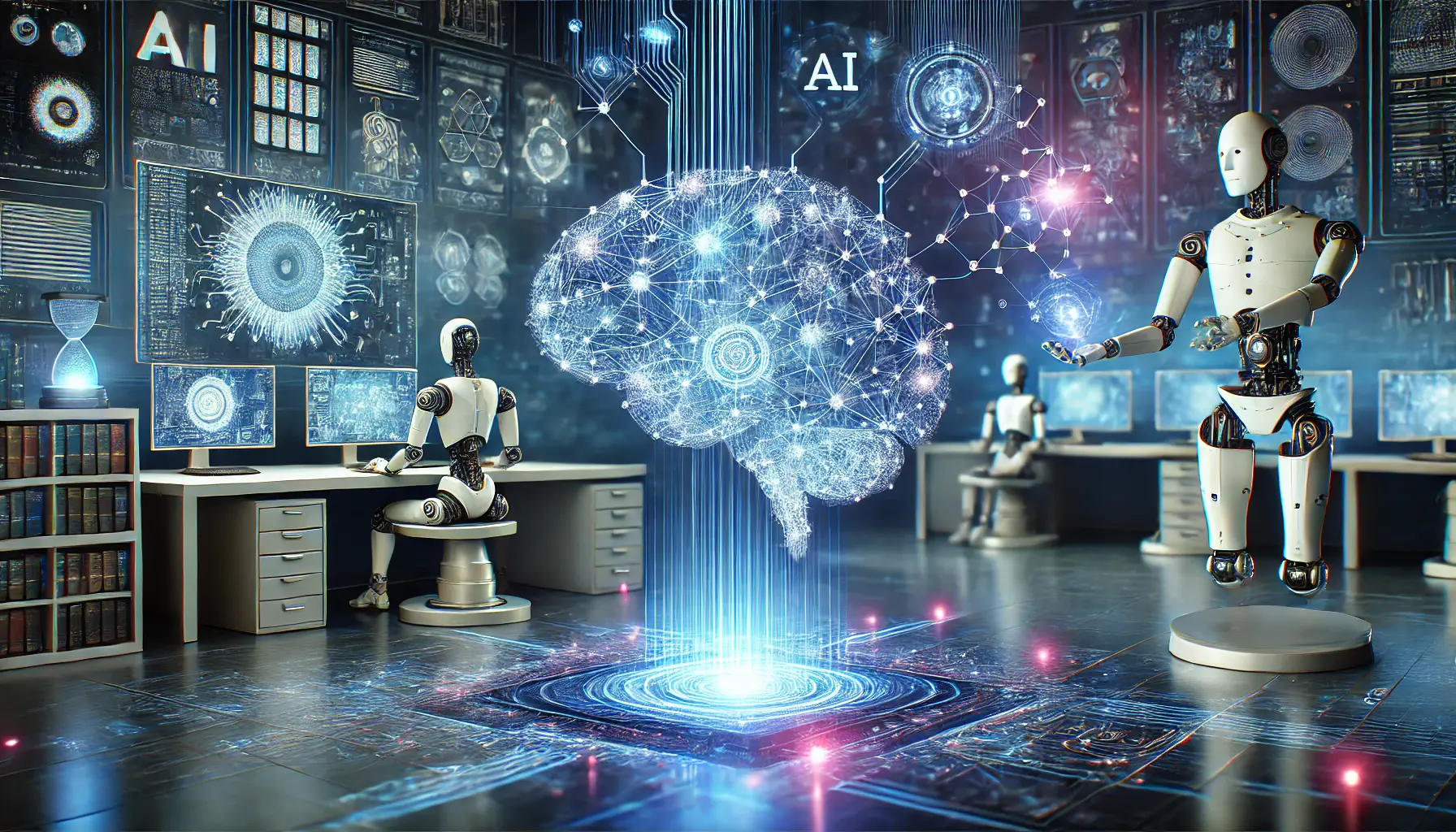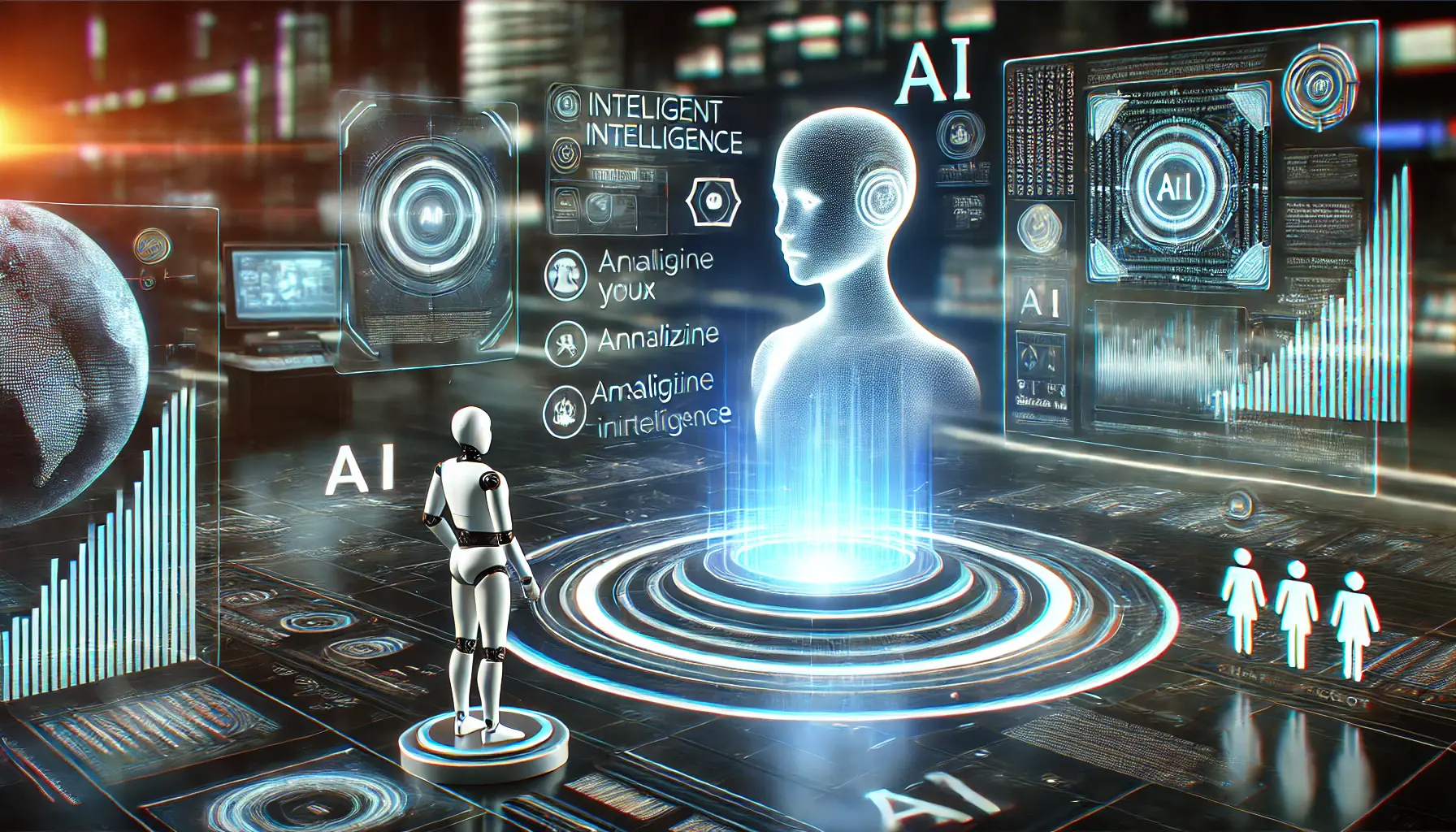The journey of developing Grok AI, a cutting-edge technology in the realm of artificial intelligence, presents a fascinating case study in the challenges and triumphs of AI innovation.
As we delve into the intricacies of creating such a sophisticated system, it becomes clear that the path is fraught with technical, ethical, and operational hurdles.
This exploration is not just about understanding the difficulties faced but also about appreciating the relentless pursuit of advancement that drives the AI community forward.
Grok AI, as a concept, aims to transcend the traditional boundaries of machine learning and natural language processing, offering solutions that are both innovative and beneficial to society.
However, achieving this noble goal is no small feat.
The development process encompasses a broad spectrum of challenges, from data acquisition and model training to ensuring ethical compliance and societal acceptance.
Each step requires meticulous attention to detail and a deep understanding of both the technology and its potential impact on the world.
- Understanding the Technical Complexities
- Addressing Ethical and Societal Concerns
- Navigating Regulatory and Compliance Challenges
- Scaling and Integration Challenges
- Ensuring Long-term Sustainability
- Exploring New Frontiers in AI Development
- Enhancing User Experience and Accessibility
- Forging Ahead: The Future of Grok AI Amidst Challenges
- Grok AI Challenges: Frequently Asked Questions
Understanding the Technical Complexities
Model Training and Data Acquisition
The foundation of any AI system lies in its ability to learn from data.
For Grok AI, this means not only gathering vast amounts of information but also ensuring its quality and relevance.
The challenge here is twofold: accessing diverse and comprehensive datasets and developing algorithms capable of learning from this data effectively.
This process is further complicated by the need for data privacy and security, as sensitive information must be handled with the utmost care.
Moreover, the model training phase is resource-intensive, requiring significant computational power and time.
Developers must optimize algorithms for efficiency without compromising their ability to learn complex patterns.
This balancing act is crucial for creating a model that is both powerful and practical for real-world applications.
Overcoming Algorithmic Bias
Another critical challenge in developing Grok AI is addressing and mitigating algorithmic bias.
AI systems learn from historical data, which can inadvertently reflect and perpetuate existing prejudices.
Ensuring that Grok AI makes decisions in a fair and unbiased manner requires a deliberate effort to identify and correct biases in both the data and the algorithms themselves.
Developers must employ techniques such as fairness-aware modeling and bias auditing to create a more equitable AI.
This not only improves the system’s performance but also builds trust with users by demonstrating a commitment to ethical AI development.
Ensuring the ethical use of AI is paramount in its development, requiring constant vigilance and adaptation to new insights and challenges.
- Identifying and sourcing diverse datasets to train the AI.
- Optimizing computational resources for efficient model training.
- Implementing fairness-aware modeling techniques to mitigate bias.
- Conducting thorough bias audits to ensure equitable outcomes.
Addressing Ethical and Societal Concerns
The development of Grok AI is not just a technical endeavor but also an ethical one.
As AI technologies become more integrated into our daily lives, their potential to influence societal norms and individual behaviors grows.
This integration raises significant ethical questions that developers must consider.
From privacy concerns to the potential for misuse, the ethical landscape of AI development is complex and multifaceted.
One of the primary concerns is the privacy and security of user data.
AI systems like Grok require access to vast amounts of information, making them targets for data breaches and misuse.
Developers must implement robust security measures to protect this data and ensure that the AI uses it in a manner that respects user privacy.
Ensuring Transparency and Accountability
Transparency in AI operations and decision-making processes is crucial for building trust with users and stakeholders.
Grok AI’s developers face the challenge of making the system’s workings understandable to non-experts, ensuring that it remains accountable for its actions.
This involves not only clear communication of how the AI makes decisions but also establishing mechanisms for oversight and review.
Accountability mechanisms are essential for addressing any negative impacts the AI may have, intentionally or unintentionally.
These mechanisms help maintain public trust in the technology and its developers, which is vital for its widespread acceptance and use.
Combatting Misuse and Ensuring Safety
As with any powerful technology, there is a risk that Grok AI could be misused.
Ensuring that the AI is used ethically and for the benefit of society requires careful consideration of its capabilities and limitations.
Developers must anticipate potential misuse scenarios and implement safeguards to prevent them.
Moreover, the safety of AI systems is a paramount concern.
This includes not only physical safety in the case of AI-controlled devices but also psychological safety in terms of how AI interactions affect users.
Ensuring that Grok AI enhances rather than detracts from human well-being is a critical challenge for its developers.
Incorporating ethical considerations into AI development from the outset is essential for creating technology that benefits society as a whole.
- Implementing data privacy and security measures.
- Enhancing transparency and establishing accountability mechanisms.
- Anticipating and preventing potential misuse of the AI.
- Ensuring the safety and well-being of users interacting with the AI.
Navigating Regulatory and Compliance Challenges
The landscape of AI regulation is constantly evolving, with governments around the world grappling with how best to oversee these powerful technologies.
For Grok AI, navigating this regulatory maze is a significant challenge.
Compliance with local and international laws not only affects how the AI is developed but also how it can be deployed and used.
This regulatory environment can be both a hurdle and an opportunity for innovation.
Adhering to regulations such as the General Data Protection Regulation (GDPR) in Europe or the California Consumer Privacy Act (CCPA) in the United States requires a deep understanding of legal requirements and a commitment to ethical data practices.
This compliance is not just about avoiding penalties but also about ensuring that Grok AI respects the rights and privacy of individuals.
Adapting to Global Standards
The global nature of AI technology means that Grok AI must be adaptable to a wide range of regulatory standards.
This adaptability is crucial for its success in international markets.
Developers must stay informed about changes in AI governance worldwide and be proactive in adjusting their practices accordingly.
This constant adaptation can be resource-intensive, requiring dedicated legal and compliance teams.
However, it also presents an opportunity to lead by example, setting high standards for responsible AI development and deployment.
Engaging with Policy Makers and Stakeholders
Effective navigation of the regulatory landscape also involves engaging with policymakers, industry groups, and other stakeholders.
By participating in discussions about AI regulation, Grok AI’s developers can contribute to shaping policies that support innovation while protecting public interests.
This engagement is not just about influencing policy but also about understanding societal expectations and concerns regarding AI.
It allows developers to anticipate regulatory changes and ensure that Grok AI remains at the forefront of ethical and compliant AI development.
Proactive engagement with regulatory changes and compliance standards is essential for the sustainable development of AI technologies.
- Ensuring compliance with international data protection and privacy laws.
- Adapting AI development practices to meet global regulatory standards.
- Engaging with policymakers and industry groups to influence and understand AI regulation.
- Anticipating regulatory changes to maintain a leading position in ethical AI development.
Scaling and Integration Challenges
As Grok AI moves from development to deployment, scaling the technology to meet user demand presents its own set of challenges.
The ability to scale effectively is crucial for the success of any AI system, requiring not only robust infrastructure but also a flexible design that can adapt to varying workloads and integration requirements.
One of the primary hurdles in scaling Grok AI is ensuring that the infrastructure can handle the computational demands of advanced AI algorithms.
This often means leveraging cloud computing resources, which introduces complexities related to cost management, data transfer speeds, and security.
Moreover, as the AI scales, maintaining the quality of its outputs and the speed of its responses becomes increasingly challenging.
Seamless Integration with Existing Systems
For Grok AI to be truly effective, it must integrate seamlessly with existing software and hardware systems.
This integration challenge is not trivial, as it involves compatibility with a wide range of technologies and adherence to various industry standards.
Developers must design Grok AI with flexibility in mind, allowing for easy integration into different environments without significant modifications.
This requirement extends beyond technical compatibility to include user experience considerations.
The AI must not only function within existing ecosystems but do so in a way that is intuitive and enhances the overall user experience.
Achieving this level of integration requires a deep understanding of the end-users’ needs and the contexts in which the AI will operate.
Optimizing for Performance and Efficiency
As Grok AI scales, optimizing its performance and efficiency becomes increasingly important.
This involves fine-tuning algorithms to reduce computational requirements without compromising the quality of the AI’s outputs.
Developers must also consider the energy consumption of running AI at scale, seeking ways to minimize the environmental impact of their technology.
Efficiency optimizations are not just about reducing costs or environmental footprints; they also improve the AI’s responsiveness and reliability.
Users expect AI systems to provide quick and accurate responses, and meeting these expectations is critical for the success of Grok AI.
Effective scaling and integration are key to transitioning AI from a promising prototype to a widely used technology that can truly make a difference in people’s lives.
- Building infrastructure capable of supporting the computational demands of AI at scale.
- Designing AI for flexibility and ease of integration with existing systems.
- Optimizing AI performance and efficiency to meet user expectations and reduce environmental impact.
- Ensuring the AI enhances user experience through intuitive and seamless integration.
Ensuring Long-term Sustainability
The development of Grok AI is not just about overcoming immediate technical and ethical challenges; it’s also about ensuring the long-term sustainability of the project.
This involves considerations of ongoing maintenance, community engagement, and the continuous improvement of the AI system.
Sustainability is key to ensuring that Grok AI remains relevant, effective, and beneficial over time.
Maintaining an AI system like Grok requires a commitment to continuous learning and adaptation.
As the world changes, so too must the AI, requiring regular updates to its knowledge base, algorithms, and operational protocols.
This ongoing maintenance is crucial for keeping the AI effective in the face of evolving challenges and opportunities.
Building a Supportive Community
One of the most effective ways to ensure the sustainability of Grok AI is to build a community of users, developers, and enthusiasts who are invested in its success.
This community can provide valuable feedback, contribute to the AI’s development, and help spread awareness of its benefits.
Engaging with this community requires transparent communication, open collaboration, and a commitment to addressing their needs and concerns.
Moreover, a supportive community can act as a source of innovation, offering new ideas and perspectives that can enhance the AI’s capabilities.
This collaborative approach not only enriches the development process but also strengthens the bond between the AI and its users, fostering a sense of ownership and shared purpose.
Fostering Continuous Improvement
For Grok AI to remain at the forefront of AI technology, it must embrace a culture of continuous improvement.
This means not just reacting to problems as they arise but proactively seeking ways to enhance the AI’s performance, usability, and ethical standards.
Continuous improvement is a cyclical process of evaluation, feedback, and refinement, driven by a desire to achieve excellence.
This process involves not only the AI’s developers but also its users and the broader AI research community.
By incorporating insights from a wide range of sources, Grok AI can evolve in ways that are both innovative and aligned with societal values.
This commitment to improvement ensures that the AI remains a valuable tool for addressing the complex challenges of the modern world.
The long-term sustainability of Grok AI depends on its ability to adapt, improve, and engage with a community of supporters who share its vision for the future.
- Implementing regular updates and maintenance to keep the AI current and effective.
- Engaging with a community of users and developers to foster collaboration and innovation.
- Embracing a culture of continuous improvement to enhance performance and ethical standards.
- Ensuring the AI evolves in response to changing societal needs and technological advancements.
Exploring New Frontiers in AI Development
The journey of developing Grok AI is not confined to overcoming current challenges; it also involves exploring new frontiers in artificial intelligence.
As technology advances, new possibilities emerge for enhancing AI’s capabilities, making it more intelligent, versatile, and beneficial to society.
This exploration is driven by a combination of curiosity, innovation, and a commitment to pushing the boundaries of what AI can achieve.
One of the most exciting aspects of AI development is the potential for breakthroughs in machine learning algorithms and computational techniques.
These advancements could enable Grok AI to learn more efficiently, make more accurate predictions, and interact with users in more meaningful ways.
However, venturing into uncharted territory also brings new challenges, from technical hurdles to ethical considerations.
Incorporating Cutting-edge Technologies
Integrating the latest technological advancements is crucial for keeping Grok AI at the cutting edge of the field.
This might include developments in quantum computing, which could dramatically increase the speed and efficiency of AI computations, or breakthroughs in neuromorphic computing, which aims to mimic the human brain’s neural structures and processing methods.
Such integration not only enhances the AI’s capabilities but also opens up new applications and use cases.
For instance, more powerful AI could lead to significant improvements in fields like healthcare, environmental protection, and education, providing solutions to some of the world’s most pressing problems.
Addressing Emerging Ethical Issues
As AI technology advances, so too do the ethical implications of its use.
New capabilities bring new responsibilities, requiring developers to consider the impact of their creations on individuals and society.
This includes issues of privacy, autonomy, and the potential for AI to influence human behavior in unforeseen ways.
Addressing these emerging ethical issues is essential for ensuring that the benefits of AI are realized without compromising human values or rights.
This requires a forward-thinking approach to AI development, one that prioritizes ethical considerations alongside technical innovation.
The future of Grok AI lies in its ability to embrace new technologies and address the ethical challenges they bring, paving the way for a future where AI enhances human capabilities and improves the quality of life for all.
- Integrating advancements in quantum and neuromorphic computing to enhance AI capabilities.
- Exploring new applications for AI in solving global challenges.
- Proactively addressing the ethical implications of emerging AI technologies.
- Ensuring that AI development is guided by a commitment to benefiting humanity.
Enhancing User Experience and Accessibility
The ultimate goal of Grok AI, beyond overcoming technical challenges and ethical considerations, is to enhance the user experience and make AI technology more accessible to a broader audience.
Achieving this goal requires a focus on usability, inclusivity, and the practical value that AI brings to everyday life.
By prioritizing the needs and preferences of users, developers can ensure that Grok AI is not only powerful and ethical but also user-friendly and beneficial to all segments of society.
Enhancing user experience involves refining the AI’s interface and interactions to be more intuitive and engaging.
This means designing systems that users can navigate easily, regardless of their technical expertise.
It also involves ensuring that AI responses are relevant, timely, and presented in a manner that is easy to understand.
The aim is to make interacting with Grok AI a seamless and positive experience that enriches users’ lives.
Making AI Accessible to Diverse User Groups
Accessibility is a critical aspect of user experience, ensuring that everyone, including those with disabilities or limited access to technology, can benefit from AI.
This requires thoughtful design choices, such as incorporating voice commands, screen readers, and other assistive technologies into Grok AI.
It also means considering language barriers and cultural differences that might affect how users interact with and perceive AI technology.
By making Grok AI accessible to diverse user groups, developers can expand its impact and ensure that the benefits of AI are shared widely.
This inclusivity not only enhances the AI’s societal value but also contributes to a more equitable and understanding world.
Delivering Practical Value to Users
The true measure of Grok AI’s success lies in the practical value it delivers to users.
This means developing AI solutions that address real-world problems and improve efficiency, productivity, and quality of life.
Whether it’s through automating mundane tasks, providing personalized recommendations, or offering support and companionship, Grok AI must prove its worth in the daily lives of its users.
To achieve this, developers must maintain a close dialogue with users, gathering feedback and insights that can guide the AI’s evolution.
This user-centered approach ensures that Grok AI remains relevant and continues to meet the changing needs and expectations of its audience.
By enhancing user experience and accessibility, Grok AI can become an integral part of people’s lives, offering solutions that are not only innovative but also inclusive and genuinely useful.
- Refining the AI’s interface to improve usability and engagement.
- Incorporating assistive technologies to make AI accessible to all users.
- Considering cultural and linguistic diversity in AI development.
- Focusing on delivering practical value that addresses real-world needs.
Forging Ahead: The Future of Grok AI Amidst Challenges
The journey of developing Grok AI, marked by its ambitious goals and the myriad challenges it faces, is a testament to the dynamic and evolving nature of artificial intelligence.
As we have explored, the challenges of developing Grok AI span technical complexities, ethical considerations, regulatory compliance, scaling and integration issues, sustainability concerns, the exploration of new frontiers, and the imperative of enhancing user experience and accessibility.
Each of these areas presents its own set of hurdles but also opportunities for innovation and growth.
Embracing Challenges as Opportunities
The development of Grok AI is not just about overcoming obstacles but also about leveraging these challenges as opportunities to push the boundaries of what AI can achieve.
The technical complexities drive advancements in machine learning and data processing, while ethical and societal concerns ensure that AI development remains grounded in human values.
Regulatory challenges encourage a dialogue between developers and policymakers, leading to more robust and universally beneficial AI systems.
The Path Forward
Looking ahead, the future of Grok AI depends on a balanced approach that considers not only the technological aspects but also the ethical, societal, and human factors.
This holistic perspective is crucial for creating AI systems that are not only intelligent and efficient but also equitable, transparent, and trusted by the public.
As Grok AI continues to evolve, it will undoubtedly face new challenges, but with these challenges come new opportunities to innovate and improve.
- Continued focus on technical innovation to enhance AI capabilities.
- Deepening the commitment to ethical AI development to build trust and ensure fairness.
- Engaging with regulatory bodies and the global community to navigate the complex legal landscape.
- Expanding efforts to make AI more accessible and beneficial to a wider audience.
In conclusion, the challenges of developing Grok AI are significant, yet they are matched by the potential rewards.
By addressing these challenges head-on and prioritizing the needs and well-being of users, developers can pave the way for a future where AI not only achieves its technical goals but also enriches society.
The journey of Grok AI is far from over, but with each step forward, we move closer to realizing the full promise of artificial intelligence.
Grok AI Challenges: Frequently Asked Questions
Explore the most common inquiries surrounding the challenges of developing and implementing Grok AI.
Key challenges include data privacy, algorithmic bias, scalability, and ensuring ethical use while navigating regulatory landscapes.
Grok AI employs robust encryption and data handling practices to protect user information and comply with global privacy regulations.
Yes, through diverse data sets and continuous learning mechanisms, Grok AI aims to reduce bias and improve fairness in its outputs.
Its flexible architecture and ability to process vast amounts of data efficiently make it adaptable to various industry needs.
By incorporating ethical guidelines into its development process and engaging with stakeholders to address potential concerns.
Grok AI navigates a complex web of international laws and guidelines to ensure compliance and promote responsible AI use.
Through intuitive design, personalized interactions, and support for assistive technologies, making it accessible to a wider audience.
Advancements in machine learning, ethical AI, and user-centric design are anticipated to drive Grok AI’s evolution.













